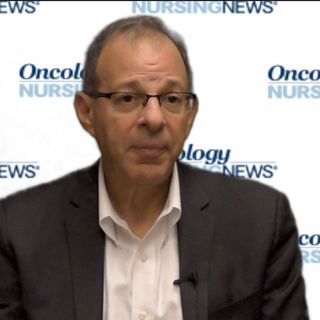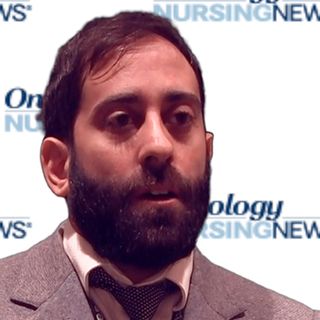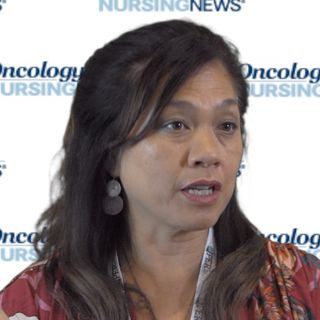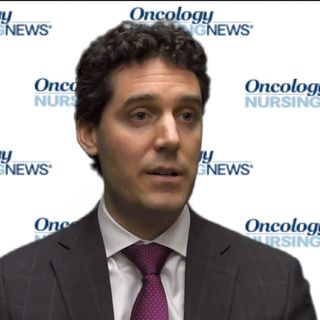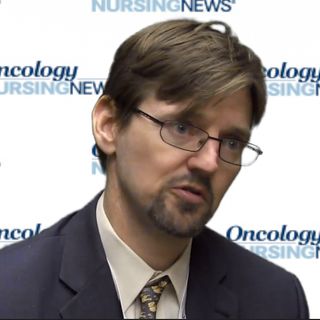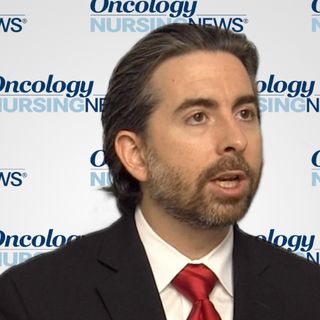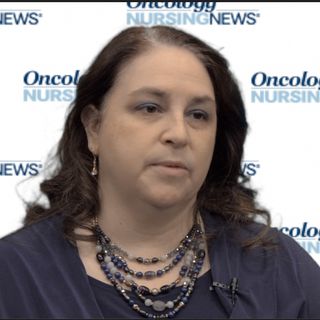
Skin Cancer
Latest News
Latest Videos

More News

Combined adjuvant treatment with mRNA-4157 in combination with pembrolizumab improved recurrence rates in patients with resected high-risk melanoma.

Retifanlimab has received accelerated approved for patients with metastatic or recurrent, locally advanced merkel cell carcinoma.

In this episode of The Vitals, we recount the oncology drugs that received FDA approvals in 2022.

Caressa Valdueza, MSN, AGNP-BC, AOCNP, discusses toxicity management with unfolding treatment options in melanoma.

A combination of vusolimogene oderparepvec and nivolumab elicited early clinical activity in patients with cutaneous melanoma whose disease did not response to anti-PD-1 therapy.

APRNs developed a discharge program which reduced readmission rates for patients receiving immunotherapy for advanced melanoma.

Atezolizumab has been granted FDA approval for patients aged 2 years and older with unresectable or metastatic alveolar soft part sarcoma.

Adjuvant pembrolizumab demonstrated significantly better quality of life outcomes for patients with resected melanoma vs standard care.

All 24 patients with Merkel cell carcinoma who received nivolumab plus ipilimumab responded to treatment, and 41% achieved complete responses.

Sotigalimab, a humanized IgG1 monoclonal antibody against human CD40, may hold value in the frontline treatment of patients with metastatic melanoma.

A significant portion of patients with resected stage IIIA melanoma were alive and recurrence free at a median follow-up of over 20 months following treatment with adjuvant nivolumab.

During the 40th Annual Chemotherapy Foundation Symposium, Jeffrey S. Weber, MD, PhD, discussesed best sequencing practices in metastatic melanoma.

Manmeet Ahulwalia, MD, MBA, underscores how novel treatment approaches in oncology are proving effective in managing brain metastases.

Immunotherapy has changed the face of cancer treatment, but requires appropriate irAE management to reach full potential.

Celebrated reality star Teddi Mellencamp is using her Instagram as a platform to stress the importance of follow-up visits for patients with melanoma.

Patients with completely resected stage IIB or IIC melanoma who received adjuvant nivolumab experienced a 58% reduction in the risk of recurrence or death.

A 5-year follow-up of the COLOMBUS trial showed that encorafenib plus binimetinib continued to provide clinical benefit for patients with melanoma harboring a BRAF V600 mutation.

Selpercatinib demonstrated a promising efficacy profile in patients with RET-fusion positive solid tumors.

Optimal treatment sequencing for patients with BRAF-mutated melanoma involves frontline immunotherapy following by BRAF/MEK inhibition, according to investigators.

Structured preceptorships promote competence, confidence, and job satisfaction in new oncology nurse practitioners.

Neoadjuvant cemiplimab elicited promising pathologic complete responses in patients with cutaneous squamous cell carcinoma.

At a median follow-up of 33.0 months, the median progression-free survival with tumor-infiltrating lymphocyte therapy was 7.2 months vs 3.1 months with ipilimumab.

The rate of event-free survival associated with pembrolizumab was significantly higher among patients with high-risk melanoma about to undergo surgery than among those who received immunotherapy following surgery.

The relapse-free survival rate was 22.3% among patients with resectable stage IIIB to IV M1a melanoma who received neoadjuvant talimogene laherparepvec versus 15.2% among those who received surgery alone.

The results of the phase 3 MASTERKEY-265 trial show that there is still an unmet need for patients who are refractory to pembrolizumab and anti–PD-1 inhibitors.





